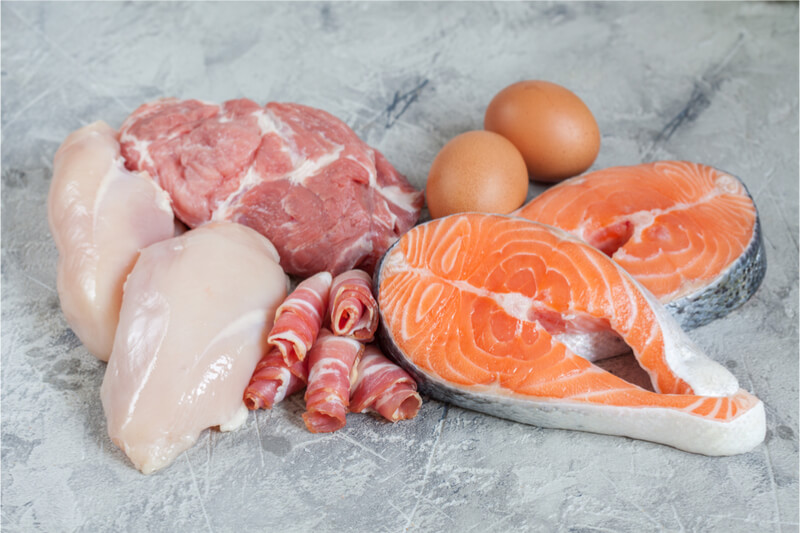why limit protein on keto Protein and ketosis: is too much protein keto-friendly?
The ketogenic diet, commonly referred to as the keto diet, has gained significant popularity in recent years due to its potential health benefits, particularly in weight loss. Central to this diet is the concept of ketosis, a metabolic state in which the body primarily relies on fat for fuel instead of carbohydrates. While adhering to the keto diet, it is essential to monitor the intake of macronutrients, such as protein, as excessive protein consumption may hinder achieving and maintaining a state of ketosis.
Protein and its Role in Ketosis
Protein is a crucial macronutrient that plays several vital roles in the body, including muscle growth, repair, and maintenance. However, the intake of protein on the keto diet needs to be moderated to ensure optimal results.
When consumed in moderation, protein can be keto-friendly as it provides essential amino acids required for various bodily functions. However, if protein intake exceeds the recommended amounts, it can be converted into glucose through a process called gluconeogenesis. This glucose can then contribute to an increase in blood sugar levels, potentially hindering ketosis.
How Much Protein is Too Much?
The ideal protein intake on the keto diet is generally around 20-25% of total daily calories. However, individual protein needs may vary based on factors such as age, weight, activity level, and overall health goals.
It is crucial to calculate and monitor daily protein intake to ensure it falls within the recommended range. On average, this amounts to approximately 0.6-1.0 grams of protein per pound of body weight. Consuming beyond this range may impede achieving and maintaining ketosis.
Importance of Balance
While limiting protein intake on the keto diet is essential, it is equally important to prioritize a well-balanced diet overall. Incorporating a variety of nutrient-dense and low-carbohydrate foods, such as vegetables, healthy fats, and high-quality protein sources, can help provide the body with an array of essential vitamins, minerals, and other nutrients.
Additionally, focusing on whole, minimally processed foods is integral to the success of any dietary approach. This ensures not only adequate macronutrient distribution but also an appropriate intake of necessary micronutrients.
A Keto-Friendly Approach to Protein
There are several protein sources that align with the principles of the keto diet. These include:
- Lean Meats and Poultry
Chicken, turkey, beef, and other lean cuts of meat can be suitable options for meeting protein needs while minimizing fat intake. It is advisable to choose grass-fed or organic variations whenever possible.
- Seafood
Fatty fish, such as salmon and sardines, provide an excellent source of protein and heart-healthy omega-3 fatty acids. Incorporating seafood into the diet ensures a well-rounded nutrient profile.
- Eggs
Eggs are a nutrient-dense and versatile protein source that can be easily incorporated into keto meals. They are also rich in essential vitamins and minerals.
- Plant-Based Proteins
For individuals following a vegetarian or vegan keto diet, plant-based protein sources, including tofu, tempeh, and seitan, can be utilized. Additionally, nuts, seeds, and certain legumes can contribute to protein intake while being low in carbohydrates.
 Remember, the key to successfully incorporating protein into a keto diet is moderation. Balancing macronutrient intake, especially protein, with healthy fats and low-carbohydrate options, will help optimize the ketogenic state and promote overall well-being.
Remember, the key to successfully incorporating protein into a keto diet is moderation. Balancing macronutrient intake, especially protein, with healthy fats and low-carbohydrate options, will help optimize the ketogenic state and promote overall well-being.
In Conclusion
The keto diet can be an effective approach for weight loss and overall health when properly followed. Monitoring protein intake is crucial, as excessive amounts can hinder ketosis. However, incorporating a variety of protein sources in moderation can ensure essential nutrient intake while maintaining a state of ketosis. With mindful dietary choices and a focus on overall balance, individuals can experience the potential benefits of the keto diet while enjoying a varied and nutritious meal plan.
References:
1. https://www.healthline.com/nutrition/protein-and-keto
2. https://perfectketo.com/how-much-protein-on-keto/
3. https://www.ketovale.com/keto-protein-sources/
If you are searching about Protein on the Keto Zone Diet: How to Know if You’re Getting Enough you’ve visit to the right place. We have 5 Images about Protein on the Keto Zone Diet: How to Know if You’re Getting Enough like Pin on Keto, Pin on * Keto Low Carb Recipes from Wholesome Yum* and also Pin on Low Carb & Keto. Here it is:
Protein On The Keto Zone Diet: How To Know If You’re Getting Enough
 ketozone.comketo protein diet zone colbert enough getting know re if kyle january posted
ketozone.comketo protein diet zone colbert enough getting know re if kyle january posted
Pin On * Keto Low Carb Recipes From Wholesome Yum*
 www.pinterest.commacros wholesomeyum carbs fats weight
www.pinterest.commacros wholesomeyum carbs fats weight
Protein And Ketosis: Is Too Much Protein Keto-Friendly? | Keto Diet
 www.pinterest.comketo protein too much perfectketo diet
www.pinterest.comketo protein too much perfectketo diet
Pin On Keto
 www.pinterest.comperfectketo
www.pinterest.comperfectketo
Pin On Low Carb & Keto
 www.pinterest.comcarbs keto choose board goal limit
www.pinterest.comcarbs keto choose board goal limit
Pin on * keto low carb recipes from wholesome yum*. Carbs keto choose board goal limit. Pin on keto